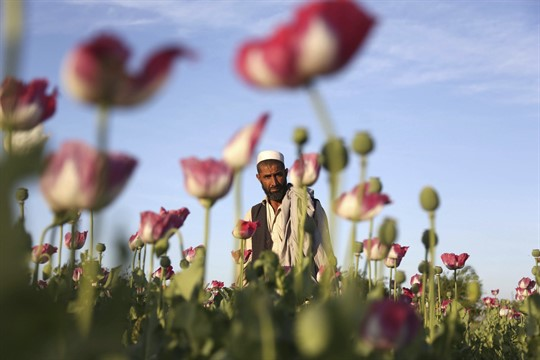
In the aftermath of the Taliban’s takeover of Afghanistan, a great deal of attention has been given to the causes and consequences of the failed intra-Afghan peace process, the factors leading to the collapse of the Afghan military and the role played by pervasive corruption at the highest levels of the country’s internationally backed government.
Far less discussion has focused on the ways that economic factors, especially the illicit opium economy, strengthened the Taliban in their years as an insurgency, and how they will limit the Taliban’s options now that they are in power.
Shortly after the fall of Kabul, Taliban spokesperson Zabiullah Mujahid stated that Afghanistan under Taliban rule would not become a narco-state, announcing the group’s intention to curtail the production of opium.
Nevertheless, the Taliban have historically taken an opportunistic approach toward opiates and heroin, forbidding their consumption, but not the cultivation of the poppies they are derived from or their processing and sale.
During the last several years before the fall of Kabul, most opium production in Afghanistan occurred in areas already under Taliban control or influence. Rough estimates suggest the Taliban may have generated around 60 percent of their income, or up to $400 million each year, from the drug trade.
